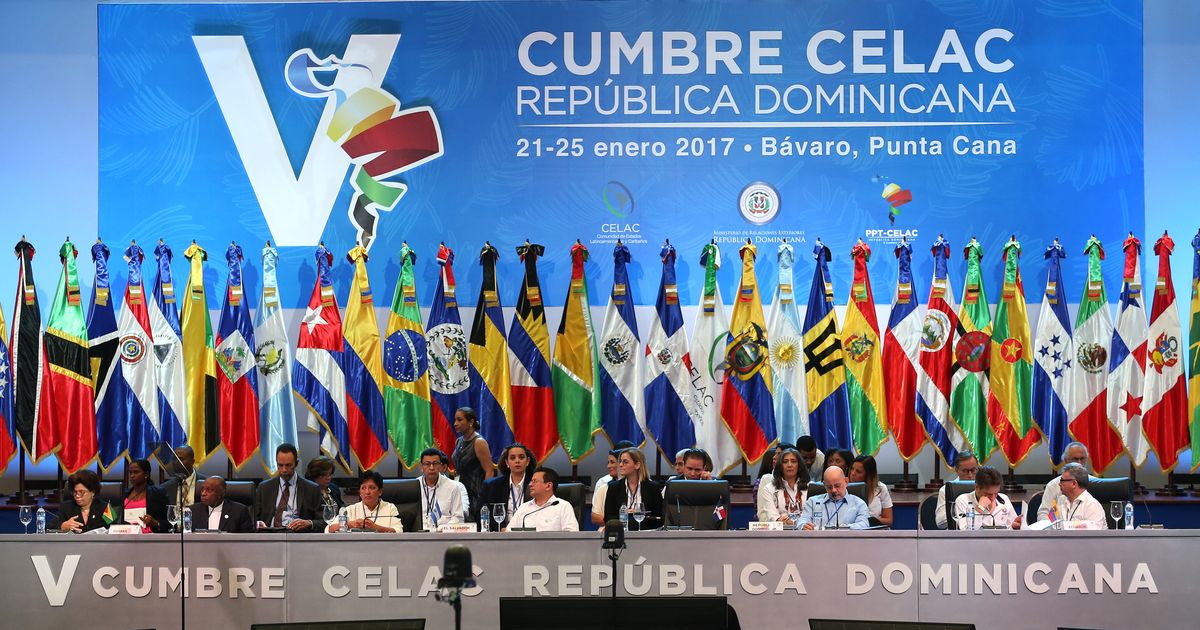Ten years have passed since the establishment of the China-CELAC forum, a platform that has consolidated China’s willingness to significantly influence its bilateral relationship with Latin American countries in order to project its influence in the region. The Community of Latin American and Caribbean States (CELAC), established in 2011 under the leadership of Hugo Chávez’s Venezuela, is a multilateral regional forum that lacks formal institutions and excludes the United States and Canada from its membership.
From the above, we can deduce Beijing’s attachment to CELAC, since it promotes an ecosystem that does not give a prominent role to the promotion of democracy, human rights and transparency. This collides –precisely– with the regional liberal order promoted by the Organization of American States (OAS), at the apex of which these values and principles are found.
Over the past decade, strategic competition between Washington and Beijing has intensified, also extending to Latin America, where the US has historically exercised significant influence. This historical authority generated an anti-American response in the region that has been instrumentalized by China through the promotion of CELAC and its institutionalization.
Initially, China-CELAC cooperation was raised in the discursive and political sphere. A cooperation aimed at promoting the emergence of a multipolar international order divided into zones of influence. This motivated the incorporation of CELAC into the United Nations system, replacing in fact to the Latin American and Caribbean Group (GRULAC), which was the bloc that traditionally influenced the world organization.
CELAC’s entry into the UN has also facilitated greater synergies between China and the G77, a coalition of 133 developing countries that promotes their collective interests and enhanced negotiating capacity within the United Nations. China is part of the club and makes significant economic contributions, which has led to the development of a way of life between Beijing and the organization by which the vast majority of the group’s declarations are signed as the Group of 77 and China.
Both CELAC’s penetration into the United Nations system and its handling of the G77 confirm China’s tendency to instrumentalize multilateral organizations and forums to promote its revisionism of the international liberal order, through multipolarity. However, behind an idyllic narrative lies China’s desire to change the world order to make it more favorable to its interests.
Furthermore, the China-CELAC forum has meant for China a direct political opening with countries with which it had no diplomatic relations. High-level exchanges and ministerial meetings within CELAC over the past decade contributed to the shift of diplomatic recognition from Taipei to Beijing, no less than five countries since 2017. This advance of China in Central America was consolidated with the revocation of Taiwan’s permanent observer status in the Central American Parliament (PARLACEN) and its replacement by China.
In the field of cooperation, the China-CELAC forum adopted an action plan in key areas for the period 2022-2024. The framework document identifies the sectors where such cooperation can be made effective through “friendly consultations on equal terms.” Cooperation in areas such as security, trade and investment, financing, agriculture, science and technology, aviation and aerospace, energy and resources, infrastructure, education or the media, among others, lays the foundation for China to continue its bilateral cooperation scheme but now within a multilateral framework.
This raises an apparent incongruity, since it is difficult to conceive of bilateral cooperation subject to a multilateral framework. And not only that: since Chinese bilateral cooperation is not subject to the institutional and public regime of multilateral cooperation, the opacity and lack of transparency that characterizes Chinese cooperation ends up materializing through diffuse and secret agreements.
This model has undoubtedly been fundamental in giving oxygen to Latin American autocracies, to the point that the scheme proposed by China has ended up empowering them. Thus, Cuba, Venezuela and Nicaragua have chosen to withdraw from the regional liberal order – at the centre of which is the OAS – and actively promote CELAC as an alternative.
At the same time, China’s efforts to promote the institutionalization of CELAC have led countries with a poor record on transparency and freedom, such as Mexico, El Salvador, Honduras, Guatemala or Bolivia, to adopt ambivalent and selective positions on issues related to transparency, human rights and democracy. On the contrary, they favor a more transactional alternative, such as the CELAC model, and less focused on values and principles.
The China-CELAC forum is therefore being used by the Chinese side to cooperate and invest bilaterally in some regional countries, under the label of “mutual benefit”. With the exclusion, by default, of the US, and in view of the uncertain panorama that looms after the US elections in November, counterweights to the China-CELAC forum seem essential. In this sense, the European Union-CELAC Summits represent an interesting alternative to preserve the inter-American values and principles developed by the regional liberal order.
Alonso E. Illueca is a lawyer, professor and associate researcher at the Santa María La Antigua University and a collaborator of Análisis Sinico in www.cadal.org

